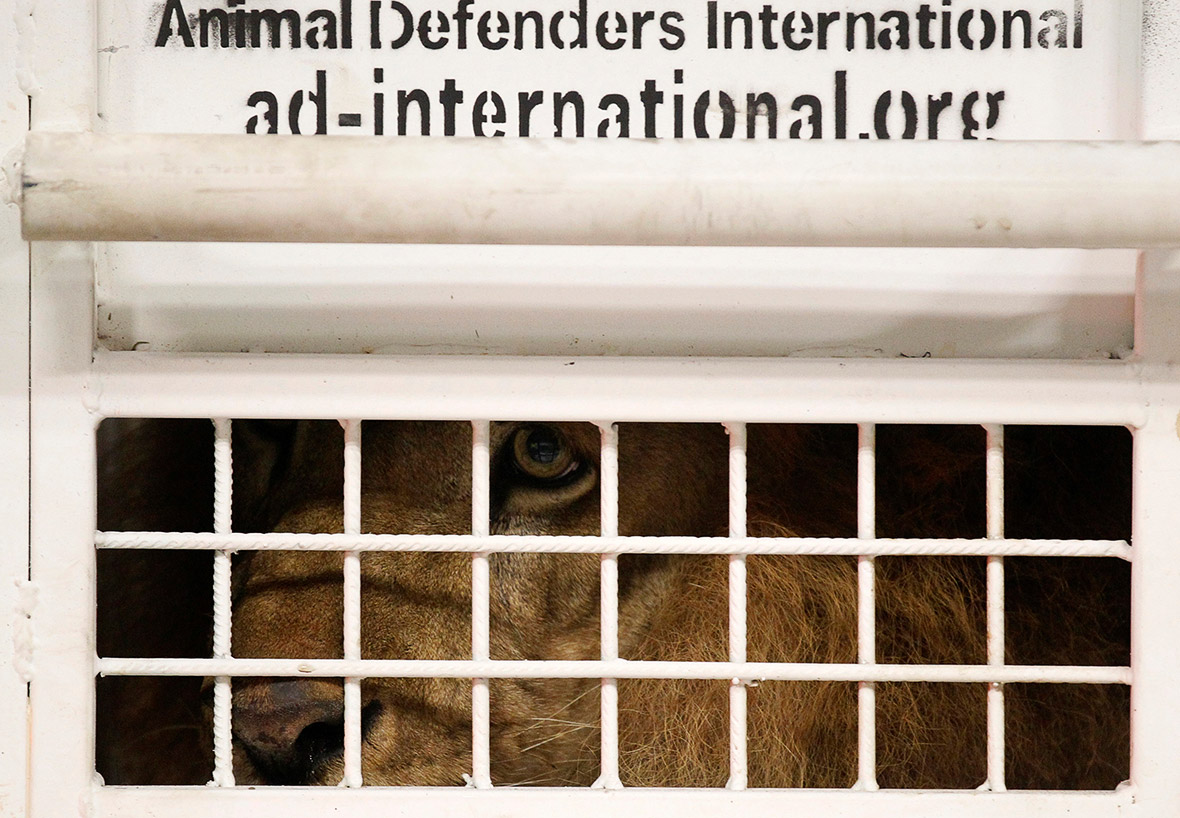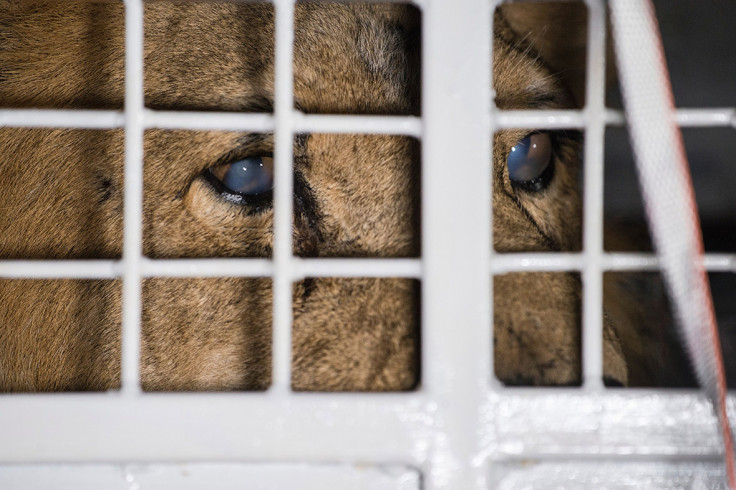Thirty-three lions rescued from circuses in South America are airlifted to South Africa
Thirty-three lions, that were rescued from circuses in Peru and Columbia, have been airlifted to the Emoya Big Cat Sanctuary in South Africa to begin their new life in the bush. The animals were flown into Johannesburg on a chartered cargo flight, before making their way on trucks to their final destination – a 5,000-hectare reserve on a private estate in Limpopo province in the north of the country.








Cleared by a state vet, the cats grunted and roared as the crates containing them were loaded onto trucks for the last leg of their journey by road several hours north of Johannesburg. "I am so, so happy, I think it's the best place for them and they deserve that because they have suffered a lot in the past," Animal Defenders International (ADI) employee in Colombia Yani Mateus said as they arrived at the sanctuary.
The rescued lions roared and played with each other through fences as they were freed for the first time.
"These animals had never, until today, walked on grass, soil and smelled the ground on the soil. When you see them rubbing against the trees, that's the first time they have ever done that so its really magical, everything we have tried to do with this project is to give these lions back the life that was stolen from them for years with these cruel travelling circuses," said Tim Phillips, vice president of ADI.













The lions will be placed in quarantine in enclosures at the 5,000-hectare (12,355-acre) Emoya Big Cat Sanctuary in Vaalwater, started three years ago by a single mother and her teenage daughter.
The 33 lions will be monitored by a vet for their first weeks in Africa. They will then be introduced to each other in a one-hectare (2.47-acre) bonding enclosure. Many of the lions were never allowed to have direct physical contact with other lions and have never been together without a fence or a cage separating them.
Jan Creamer, president of ADI, which carried out the operation, said this was the largest airlift of lions in history. "These lion have suffered tremendously," Creamer said as the lions were loaded in crates onto trucks. "They lived in small cages on the backs of trucks for their entire lives. Some of them had their teeth bashed in with steel pipes in circuses in Colombia and Peru. Some of them had their claws removed. It is a wonderful feeling to bring them back to their home."

It will be impossible for the lions to survive in the wild as they were bred in captivity. Because they cannot hunt they will be kept in an enclosure for the rest of their lives and fed game meat and given water.
The enclosures will be fitted with drinking pools, platforms and toys to ensure the lions don't become bored, the plots will expand steadily as they become familiar with their new life, said Savannah Heuser, who started Emoya with her mother. Set in an area with a mix of habitats including mountainous regions, rolling grasslands, forests, cliff caves and river gorges, the sanctuary has a strict non-breeding policy, Heuser told The Associated Press. Female lions may receive contraceptive medications, while males may undergo vasectomies to make sure that no lions are bred in captivity.
"The animals have no conservation value whatsoever. Many of them have been inbred," she said. "When we are sure that no breeding will take place, we allow males to interact with females. By then a pattern will have emerged... and we will know which lions can be placed together."
ADI said 24 of the cats had been taken from circuses in Peru, part of a menagerie of over 100 animals rescued with the help of Peruvian officials cracking down on illegal wildlife trafficking. Bears, monkeys and other wildlife scooped up in the operations in Peru have been transferred to sanctuaries in the South American country and a tiger has been flown to Florida. Nine of the lions from Columbia were voluntarily surrendered by a circus.
ADI said both countries have banned the use of wild animals in circuses. The Emoya Big Cat Sanctuary needs donations to help them build the lions' new homes, feed and care for them, and provide them with the medical attention and ongoing enrichment they need. You can find out more about each of the 33 lions here.
© Copyright IBTimes 2025. All rights reserved.






















